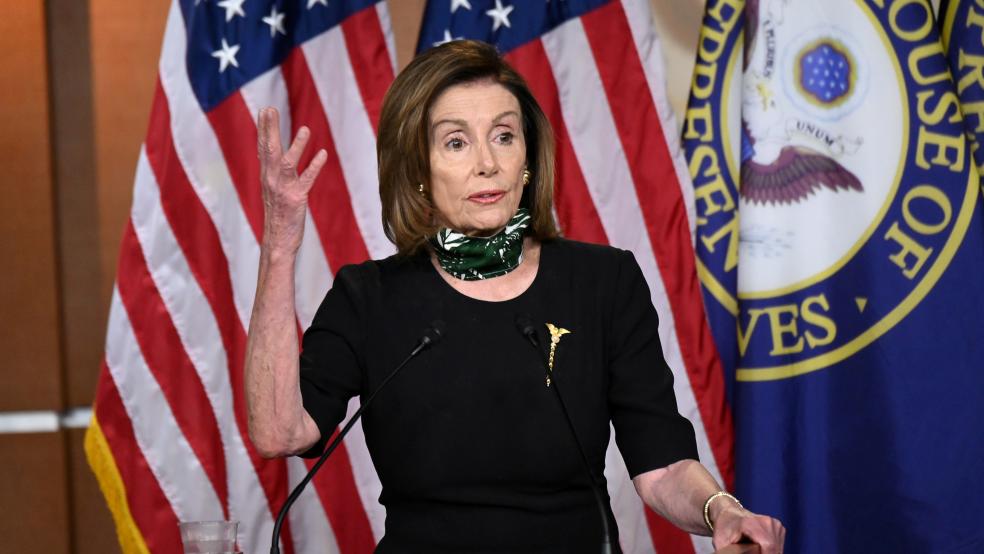The House on Friday night passed a $3 trillion emergency coronavirus relief bill in a 208-199 vote. The package, which would be the largest emergency spending package in U.S. history, is destined to be ignored by the Senate.
The 1,800-page legislation, titled the HEROES Act, would provide nearly $1 trillion in additional aid to state and local governments as well as another round of direct payments to individuals, a further extension of enhanced unemployment benefits, hazard pay for frontline workers and funding for increased coronavirus testing. But the bill also includes a number of other Democratic priorities, such as allowing voting by mail this November and a temporary repeal of the cap on state and local tax deductions.
Senate Republicans dismissed the legislation as a “left-wing wish list” and said the bill would be dead on arrival in their chamber. President Trump has also pledged to veto the legislation should it get to his desk.
An opening offer: House Speaker Nancy Pelosi pushed ahead with the package in order to lay down a marker for bipartisan talks. “We’re putting our offer on the table. We’re open to negotiation,” she told reporters on Thursday. No formal negotiations are happening, though, as Republicans and the White House say they want to assess how the trillions of dollars previously provided are working.
Some Democratic defections: The package passed despite some objections from both progressives, who said the legislation didn’t go far enough, and moderate Democrats, who worried about backing a partisan bill that couldn’t become law. Fourteen Democrats voted against the legislation, while one Republican, Rep. Peter King of New York, voted for it.
Rep. Pramila Jayapal of Washington, a leader of the progressive caucus, had pushed for a $600 billion “Paycheck Guarantee” program that would have providing federal funding to cover business payrolls, but Democratic leadership rejected the plan as too costly and complicated. Jayapal announced Friday she would oppose the HEROES Act, saying that in her view, it “ultimately fails to match the scale of this crisis.”
Rep. Abigail Spanberger, a moderate Democrat from Virginia, also came out against the bill. “Unfortunately, many Members of Congress — including some in my own party — have decided to use this package as an opportunity to make political statements and propose a bill that goes far beyond pandemic relief and has no chance at becoming law, further delaying the help so many need. Therefore, I will respectfully vote against this bill,” she said in a statement.
The bottom line: Any bipartisan progress on the next round of coronavirus relief is likely still a long way away. Larry Kudlow, director of President Trump’s National Economic Council, on Friday dismissed the idea of another large spending package, and — as you can see below — the White House is still pushing for new tax cuts.
“The point here is another $3 trillion package just seems off target to me,” Larry Kudlow, director of President Trump’s National Economic Council, said Friday. “I don’t believe we can spend ourselves into prosperity over time, and instead I believe that President Trump’s original policies, which reduced taxes and regulations, are exactly the tonic that we should pursue going forward in a new round of negotiations.”
Those ideas are unlikely to find much support among House Democrats.





